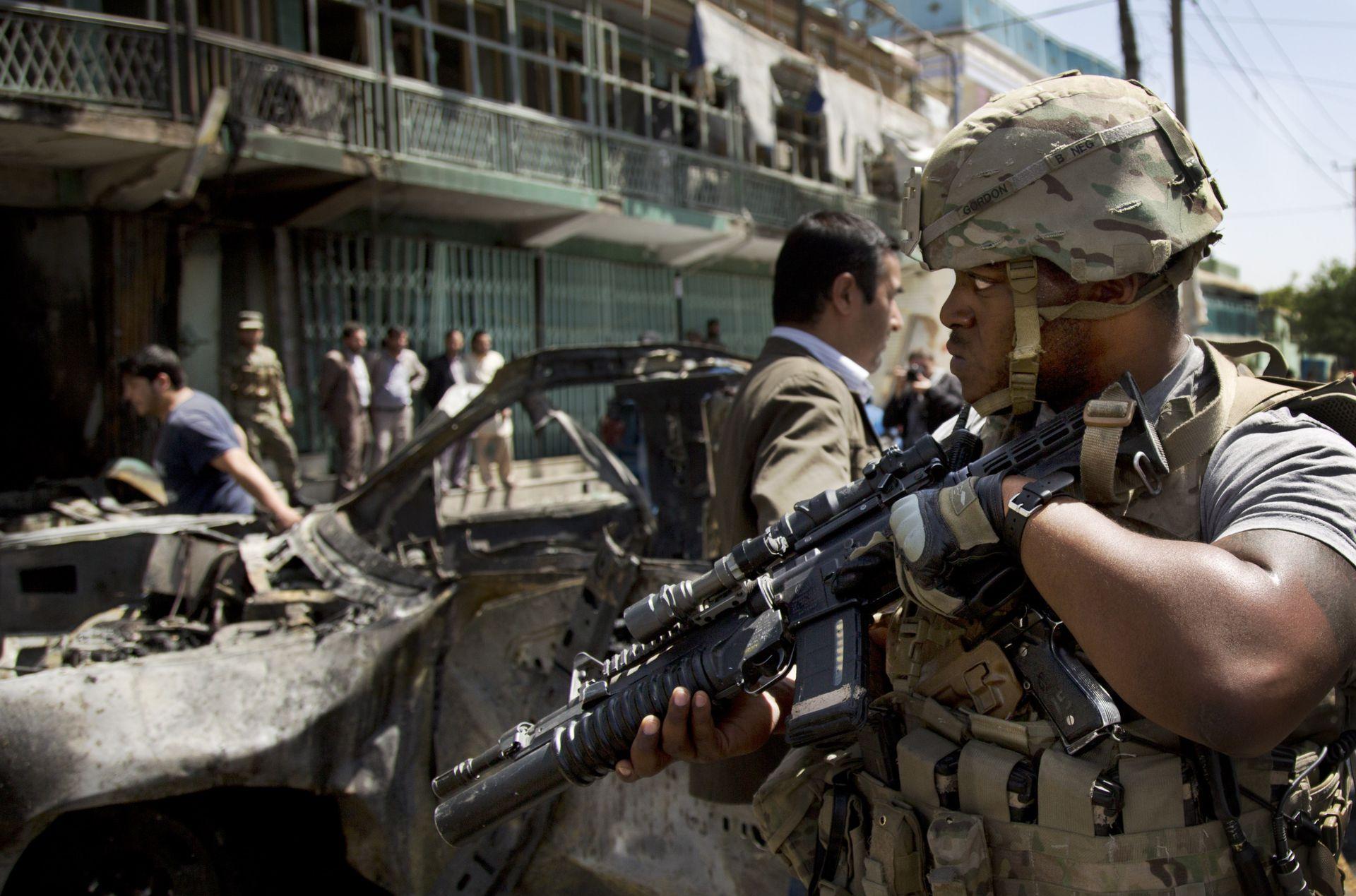Text\World
In recent times, the US military, which claims to be invincible in the world, has encountered many troubles and difficulties. First, it was a suicide bomb attack at the airport in Kabul, the capital of Afghanistan, which killed 13 U.S. Marines at kabul airport and injured 18 others on the spot, which is the most serious casualty accident encountered by U.S. combat troops in overseas deployment in the past 10 years. External troubles have not been peaceful, but internal worries have arisen again, the bones of the US soldiers who were killed at the Kabul airport are not cold, and there has been an unexpected chaos on the side of retired veterans in the United States. The official and non-profit organizations of the US military have opened a veteran suicide prevention hotline one after another, and the US veterans who called even showed a state of hysteria, and hoarsely shouted on the phone, "I have shed tears for a lifetime this week."

The US news website "Daily Beast" recently published an op-ed exposed news in which it claimed that the withdrawal of US troops from Afghanistan and the "fall of Kabul" caused serious psychological trauma to many VETERANS of the US military who had participated in the War in Afghanistan. Over the past few weeks, the number of veterans seeking help from the U.S. military's official Department of Veterans Affairs has surged, and the "Prevention of Veteran Suicides" hotline opened by various non-profit veterans charities has been fully filled. However, even if the official departments of the US military and non-profit charitable organizations are fully operational, they still cannot help all the traumatized veterans, which shows the large number of them, and even more unsupported veterans have committed suicide due to depression and psychological and mental problems.
According to the BBC, Mark . Mark Longley is one of the U.S. military veterans who recently committed suicide. He served in the U.S. military unit in Afghanistan from 2012 to 2014, and according to Mark's friends, the U.S. veteran who returned from the Battlefield in Afghanistan chose to swallow a gun and kill himself. And for the reason for Mark's suicide, his old comrade-in-arms during his service in Afghanistan: Andrew. Andrew Strutt conducted a detailed investigation and concluded that the recent "fall of Kabul" and the "great escape of American troops" led to Mark, who had served in Afghanistan for 2 years, choosing to swallow a gun and commit suicide. "Mark, he's been through a lot of battles, he never shows his feelings, you see he's always a cold look, he doesn't react to anything around him." Andrew believes that the indifference that Mark has suffered after returning from the battlefield in Afghanistan and the strange eyes of those around him are also an important reason: "Mark needs to talk and communicate frequently, but no one has ever cared about him."
Andrew's findings are not unfounded, said Matthew Matthew, director of suicide prevention at the U.S. Department of Veterans Affairs. Matthew Miller made a similar argument, pointing out that the Taliban's rapid takeover of all of Afghanistan worsened the mental health of U.S. veterans, and that the reality dealt a heavy blow to U.S. veterans with potential suicidal thoughts, ultimately leading them to irrational behavior. The same U.S. Department of Veterans Affairs announced that the day after the Taliban entered Kabul, the rate of calls for help from the Veterans Crisis Hotline rose by 12 percent, and a week later, the number rose further to 17 percent. The US media reporting the news believe that many VETERANS who have retired from the Battlefield in Afghanistan are struggling to watch a country that has struggled for 20 years fall into the hands of a former sworn enemy, but they can do nothing.
Stop Soldier Suicide, a non-profit organization in the United States, also released news that the organization's chief development officer, Tina M. Tina Starkey said the number of requests for help received so far has increased by about 20 percent due to the crisis caused by the large withdrawal of U.S. troops in Afghanistan. Over the past two weekends, the number of requests for help has soared by 90% and 60% respectively from the historical average, which is a very frightening number, enough to show that more and more veterans are wandering on the brink of suicide. Dave, who currently works for a public welfare organization and has served in the U.S. military in Iraq. Dave Kennedy, too, said in an interview that the situation was very bad. Not only veterans, but many active U.S. soldiers are also demoralized and in need of help, wondering if everything they're fighting for makes sense. Despite trying to help others, Dave himself is not in a good shape: "I've shed a lifetime of tears over the past week."
From the above realities, it is not difficult for us to see that the derivative consequences caused by the failure of the US military to invade Afghanistan because of its unjust dispatch are undoubtedly very serious. There are not a few veterans of the US military who have suffered serious psychological trauma and suicidal tendencies, and the young US soldiers who are actively serving have also been affected and their morale has been greatly damaged. In the final analysis, all this can be called the self-inflicted guilt of the United States, which is the result of the arbitrary launching of unjust foreign wars. It is still unclear how the U.S. military will deal with this thorny issue in the future, but the only thing that can be determined is that, at least for now, the rising suicide rate of U.S. veterans shows no signs of decreasing or stopping.